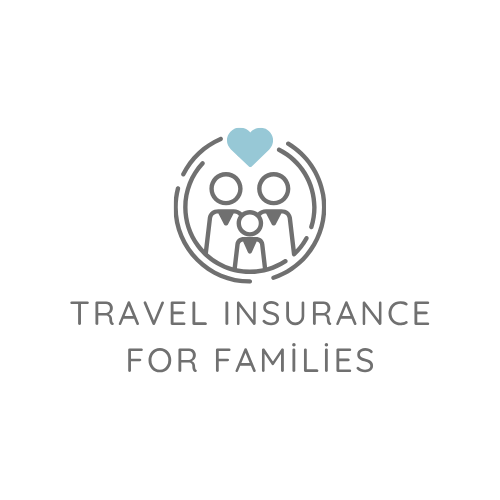Best Business Insurance for Startups in 2025: Top Plans & Guide
Launching a startup is an exciting journey, but protecting your new venture with the best business insurance for startups is crucial to safeguard against risks like lawsuits, property damage, or data breaches. At SafePolicyNow.com, we help startup founders in the US, UK, Canada, and Australia find affordable, tailored insurance plans to support their growth. This guide compares top providers, coverage options, and expert tips to ensure your startup thrives, offering better insights than sites like Policygenius or NerdWallet.
Why Startups Need Business Insurance
Startups face unique risks, from client disputes to equipment failures, and insurance provides a financial safety net to keep your business running. According to the U.S. Small Business Administration (SBA), 40% of small businesses face liability claims within their first decade, with average costs exceeding $30,000. For startups with limited capital, a single claim could be devastating. Business insurance covers legal fees, property repairs, and more, allowing you to focus on innovation and growth.
This guide will help you find the best business insurance for startups, whether you’re launching a tech company, retail shop, or freelance consultancy.
Types of Business Insurance for Startups
Understanding the types of business insurance available is key to building a tailored protection plan. Here are the most relevant options for startups:
1. General Liability Insurance
- What it is: Covers claims for bodily injury, property damage, or advertising injuries caused by your business.
- Best for: Startups with client interactions or public-facing operations.
- Pros: Affordable, protects against common lawsuits.
- Cons: Doesn’t cover professional errors or employee injuries.
2. Professional Liability Insurance
- What it is: Protects against claims of negligence or mistakes in professional services (e.g., consulting, software development).
- Best for: Tech startups, consultants, or service-based businesses.
- Pros: Covers costly lawsuits for errors or omissions.
- Cons: Higher premiums for high-risk services.
3. Commercial Property Insurance
- What it is: Covers damage to your business property (e.g., office equipment, inventory) from fire, theft, or natural disasters.
- Best for: Startups with physical assets or leased office spaces.
- Pros: Replaces damaged property, covers business interruption.
- Cons: May require separate flood or earthquake coverage.
4. Cyber Insurance
- What it is: Covers costs from data breaches, cyberattacks, or ransomware.
- Best for: Tech startups or businesses handling customer data.
- Pros: Pays for legal fees, customer notifications, and recovery costs.
- Cons: Limited coverage for certain cyber risks.
5. Workers’ Compensation Insurance
- What it is: Covers medical costs and lost wages for employees injured on the job.
- Best for: Startups with employees (often legally required).
- Pros: Meets state requirements, protects employees.
- Cons: Not needed for solo entrepreneurs.
Not sure which coverage fits your startup? Explore our Business Insurance Basics Guide.
Key Factors to Consider for Startup Insurance
When choosing the best business insurance for startups, evaluate these factors:
- Business Risks: Assess your industry’s risks (e.g., tech startups need cyber coverage, retail needs liability).
- Coverage Limits: Ensure limits are sufficient (e.g., $1 million for general liability, $50,000 for property).
- Premium Costs: Average premiums range from $500–$2,500/year, depending on business size and coverage. Compare quotes for savings.
- Deductibles: Higher deductibles (e.g., $1,000) lower premiums but increase out-of-pocket costs.
- Insurer Reliability: Choose providers with strong financial ratings from AM Best and fast claims support.
Top Business Insurance Providers for Startups in 2025
Here’s a comparison of top insurers based on affordability, startup-friendly features, and customer satisfaction:
| Provider | Best For | Key Features | Estimated Annual Premium |
|---|---|---|---|
| Hiscox | Freelancers, small startups | Flexible professional liability, low premiums | $400–$1,200 |
| The Hartford | Retail, service startups | Comprehensive liability, bundling options | $600–$1,800 |
| Chubb | Tech startups | Robust cyber insurance, global coverage | $1,000–$2,500 |
| Nationwide | Contractors, home-based startups | Strong property and workers’ comp coverage | $700–$2,000 |
Internal Link: Compare these providers in our Business Insurance Reviews.
Expert Tips for Startup Founders
Our experts at SafePolicyNow.com share these strategies to maximize your insurance value:
- Start with Essentials: General liability is a must for most startups; add professional liability or cyber insurance based on your industry.
- Bundle Policies: Combine general liability, property, and cyber insurance for discounts of 10–20%. Pair with auto insurance if applicable.
- Assess Risks Regularly: Update coverage as your startup grows, adding employees or new services.
- Leverage Technology: Use insurers like Hiscox with online tools for quick quotes and claims.
- Check State Requirements: Some states mandate workers’ comp or specific liability coverage. Visit SBA.gov for details.
Example Scenarios: Choosing the Right Business Insurance
Scenario 1: Tech Startup Founder
- Profile: 27-year-old launching a SaaS company with sensitive client data.
- Best Option: Chubb general liability and cyber insurance bundle.
- Why: Protects against data breaches and lawsuits, with premiums around $1,500/year.
Scenario 2: Freelance Consultant
- Profile: 35-year-old marketing consultant working from home.
- Best Option: Hiscox professional liability and general liability package.
- Why: Covers client disputes and third-party injuries, costing $400–$800/year.
Scenario 3: Retail Startup with Employees
- Profile: Couple opening a boutique with three employees.
- Best Option: The Hartford general liability, property, and workers’ comp package.
- Why: Meets legal requirements and protects the store, with premiums around $1,200–$2,000/year.
FAQs: Common Questions About Business Insurance for Startups
Do Startups Need Business Insurance?
Yes, to protect against lawsuits, property damage, or cyber risks, especially if you have clients, employees, or physical assets. Use our Coverage Calculator.
How Much Does Business Insurance for Startups Cost?
Premiums range from $400–$2,500/year, depending on coverage and business size. General liability starts at $400/year for small startups.
Can Startups Get Insurance Without Employees?
Yes, solo entrepreneurs can get general or professional liability without needing workers’ comp.
Does Business Insurance Cover Remote Work?
Most plans cover remote operations, but confirm cyber coverage for data risks. Check with providers like Chubb.
Learn more in our Business Insurance Guides.
Conclusion: Protect Your Startup’s Future Today
Choosing the best business insurance for startups in 2025 safeguards your venture from unexpected setbacks, letting you focus on growth. At SafePolicyNow.com, we simplify the process with expert advice and free tools. Start protecting your startup today with our Business Insurance Comparison Tool or explore our Insurance News & Updates.
For more on startup risk management, visit U.S. Small Business Administration.

